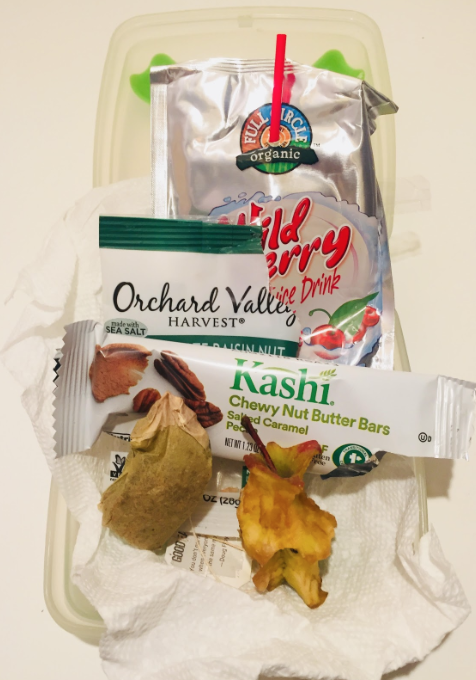Climate Change: A Hot Topic?
In the current political climate, climate change itself has become a hot topic…or has it? Although it appears in the media as a partisan issue, the charge that the phrase “global warming” carries makes it hard to find out how much of this climate change mania has reached the average citizen.
Furthermore, between the arguments over whether the temperature is changing naturally and whether we should do anything about it, the facts often get lost in translation. There are many common misconceptions about the role humans have in perpetuating climate change. For example, in the United States alone, greenhouse gas emissions from human activities totaled 6.5 million metric tons in 2012 (United Nations Environment Programme). How much of that did you contribute to, and is your contribution really that much? I took to the halls of Middleton High School to find the answer to this question.
At a lunch table in the middle of a bustling cafeteria filled with food consumption and waste as far as the eye can see, I approached two students, Wilhelmina and Jackie, to explore their thoughts regarding their impact on the human footprint.
Q: Does your diet affect climate change?
Jackie: Yes.
Answer: CORRECT! The food groups you primarily consume, the amount and type of meat you eat, the amount you waste, and whether or not you eat organic can affect your carbon footprint.
Q: Do you have to give up meat in order to greatly reduce your carbon footprint?
Jackie: No, you don’t have to give up meat. Maybe eat less of it, but you don’t have to give it absolutely up, because there are advantages of eating meat, because of all the proteins in it.
Answer: CORRECT! Although meat produces the highest carbon emissions of any other food group, there are ways of eating meat that will reduce your carbon footprint. Substituting out beef for a less carbon-intensive meat such as chicken reduces your carbon footprint by 882 pounds, CO2e- (carbon dioxide equivalent).
Q: Which food group produces the least carbon emissions?
Jackie: I think fruits or vegetables, just because they are naturally grown.
Answer: INCORRECT. Although it is true that fruits and vegetables produce far fewer carbon emissions than meat and dairy, grain products have the smallest impact on the human footprint, contributing to only 3% of greenhouse gases in agriculture.
Q: What food product produces the most carbon emissions?
Wilhelmina: I’d probably say meat products.
Answer: CORRECT! Meat products contribute to the most carbon emissions out of any food group, with beef products producing more carbon emissions than any other food.
Q: Are organic or non-organic foods better for the environment?
Wilhelmina: I’d say organic because they use less machinery.
Answer: CORRECT! Organic foods do produce fewer carbon emissions, although this is due to the decreased use of environmentally harmful pesticides and herbicides. Organic farming requires far more human labor than the farming of non-organic foods, making organic produce more expensive.
Q: Do you think you as an individual have more of an impact on global climate change, or do corporations?
Student Answer: Corporations probably have a lot higher of an impact than me, but I still do have an impact. Because [in corporations], it’s a lot more people doing a lot more things than me.
Answer: IT’S COMPLICATED. There is no clear consensus on this issue. Corporations certainly produce the broad majority of carbon emissions. However, it can be argued that the individual consumers that fuel corporations contribute to the human footprint just as much as corporations do.
Whatever you think your impact on this planet is, climate change is a real and prevalent issue. Since 1880, our Earth has undergone an extreme and unprecedented temperature spike of 1.8 degrees Fahrenheit (NASA). Although that may not seem like much of a difference now, these numbers will continue to grow at a rate too fast for human evolution. Also, since 2012, the sea level on our planet has been rising 3.2 millimeters per year (NASA). This is predicted to cause massive problems in coastal areas of human development and is already contributing to severe weather worldwide. With such drastic changes occurring, the future of our planet is thrown into question. So, what can you do about it?
When you’re at lunch, look around at your plate. How much meat are you eating? Is there a better alternative? How much of your food is organic? How much of it was locally sourced? By taking steps to change something as simple as your diet, you can help reduce your carbon footprint and preserve our planet.









